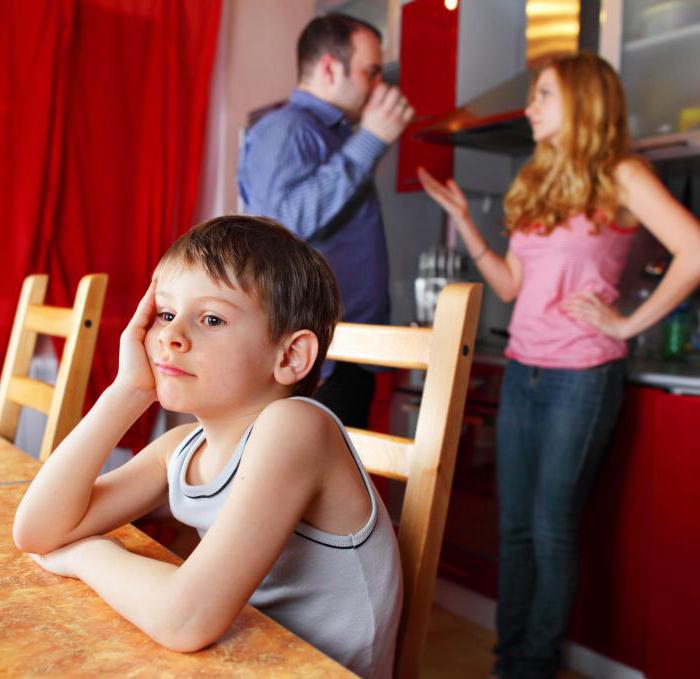How a three-year-old child develops, why a crisis occurs
At 3 years old, the baby’s brain is already well developed, so he can do several actions at the same time and control the body. This opportunity is considered the greatest achievement of a child at this age. The skills he masters now will remain forever. Gross and fine motor skills are being developed. The baby needs to be involved in household chores, sent to a club or kindergarten.
There is an active development of the body and psyche. The toddler develops speech, playing skills, communication with others, and his own “I”. The crisis arises due to a leap in development, the formation of one’s own personality.
The baby is no longer satisfied with the previous behavior of his parents; he wants his personality to be taken into account. It is important for loved ones to be wise and patient, since the character of their child depends on this.
The development of one’s own “I” can last from several months to 2 years. The main sign of an imminent crisis is recognition of one’s reflection: if before the baby called himself “This is Kirill,” now he will say “This is Me.”
The list of the main signs of the crisis is presented:
- negative;
- stubbornness, obstinacy;
- self-will;
- autocratic behavior;
- We devalue adults;
- hysterical fits.
The main symptoms of the three-year crisis
In order to adjust your actions when raising a child at 3 years old, you need to notice the symptoms of a developing crisis in time. They were first described by Elsa Keller in her work “On the Personality of a Three-Year-Old Child,” where she highlighted:
- Negativism. Its main manifestation is refusal to obey adults, their demands, and even the usual way of life. Child psychologists say that when raising a 3-year-old child, it is necessary to distinguish negativism from ordinary disobedience. The main difference is that the child does not do exactly what adults ask him to do, regardless of the content of the request or proposal itself. The desire to contradict can in some cases reach the point of absurdity, when a child calls white black;
- Stubbornness. The desire to insist on one’s own at this age can take on quite categorical forms. In this case, there are usually no special motives for this, but the child, despite all reasonable arguments, may continue to stand by his original decision;
- Obstinacy, which is not directed against a specific adult, but, in principle, against existing norms of upbringing and lifestyle. Also, when raising a child at 3 years old, parents should be prepared that their baby will begin to reject all his favorite toys and usual entertainment, without offering anything in return;
- Willfulness, which is expressed in the desire to show independence in all matters;
- Devaluation, which manifests itself in attempts to swear and call those who are dear to him, including parents. Also at this time, the child’s favorite toys may lose value, which he can easily break or throw away;
- Protest-rebellion, manifested in frequent quarrels with parents, a state of constant conflict with them and other people;
- Despotism, which occurs most often in families with one child. When raising a 3-4 year old child, parents should be prepared for the fact that their child may show a desire to put pressure on others. He can demand from them to do what he wants at a given moment in time, regardless of reasonable arguments about the need for this or that action (for example, a child needs to go to kindergarten because his mother goes to work). This is similar to a child’s attempt to return to infancy, when virtually any of his wishes was fulfilled unquestioningly.
Almost all of the symptoms described affect the child himself and the people around him. Young parents, when raising a three-year-old child, may think that the child simply has a bad character, but this is not so. Psychologists associate the crisis with the restructuring of the child’s social relationships with the people around him and the emergence of prerequisites for independent activity, as the child strives to become like adults.
Meaning of Parental Restriction
A ban is a boundary for a child set by parents for his benefit. It has an important educational function—it forms the perception of reality in the child’s mind. The little one learns to understand when to stop being capricious and how to behave with other people.
Of course, children are not happy with parental prohibitions and may become angry and offended, but adults need to understand that these boundaries play an important psychological role in the proper upbringing of a child. Thanks to them, boys and girls aged 3 feel parental care, calm down and begin to get used to discipline.
Unfortunately, in our time there is a pressing problem when parents, who “grew up” on numerous prohibitions, allow their child a lot. With age, the child will develop a serious dependence on manipulation and provocation, immaturity, and capriciousness.
The second, very serious parental mistake is the abuse of prohibitions. The result of such upbringing: a timid, timid and indecisive person who will consult with his parents before making a decision.
In order not to encounter the above problems, parents need to justify the ban. It is important for the toddler to understand why certain actions are prohibited.
Based on the root causes, prohibitions can be conscious or unconscious.
Conscious prohibition
Involves parental protection of the child from unpleasant phenomena. For example, by not allowing the baby to eat ice cream or drink cold juice, the mother will protect the baby from a sore throat.
This also includes prohibitions that help develop the concept of discipline in a child. If they are not used, there is a risk that whims, tantrums and the desire to manipulate will become habitual phenomena for the child.
Another reason for a conscious prohibition is habit. The child’s parents unwittingly copy the educational methods of their parents and forbid their children the same things that were forbidden to them in childhood.
Unconscious prohibition
Adults resort to unconscious prohibitions for the following reasons:
- Underneath them lies worry, resentment, and irritation.
- Envy. Without allowing something, a parent can involuntarily remember his childhood years and compare it with the life of his baby. A shortage of beautiful toys and clothes can provoke envy, which will result in an unconscious ban. This ban does not have a protective, educational function.
- Anxiety. Excessive parental care can often harm a toddler. For example, he wants to get a cat or a dog. By taking care of a pet, he will understand what responsibility, duty, and discipline are. But parents may think that the pet might bite the child. As a result, the baby is refused.
To summarize, we can say that parents should not:
- use a judgmental tone;
- prohibit your favorite activity;
- abuse prohibitions.
The value of quality education
What do you understand by education? Corner? Belt? Moral teaching? All this relates to punishment, and in no way corresponds to the intention to help. You need to act in 3 directions: teach, instruct and correct. Why and how?
- Moral. It is at this age, when your feelings are so clear, that you can show that other people also have feelings. They can be sad and happy. This is how the baby begins to understand that he can act in someone’s interests and take care of someone. This social and moral education is the basis for raising a child to be a responsible and attentive person.
- Ecological. It seems so difficult to explain to a toddler that they need to protect nature. After all, he does not understand what nature is, and how to protect it, and why to do it. But it is precisely at the age of 3-4 that it is worth paying attention to the basics of environmental education. To do this, you need to use simple and understandable truths. For example, the fish give us water so we can wash and drink. And if you take a lot, a lot of water, there won’t be enough water for the fish. Sorry for the fish. This is how a girl or boy will save water in the first stages, thinking about fish. As he grows up, we will be able to supplement this knowledge of his.
- Patriotic. How to explain to a toddler that this is his land, his Motherland, country and people are his fellow citizens? This is also part of another instruction, spiritual and moral. Believe it or not, it’s as simple as shelling pears. Moreover, this preschool “education” includes a story about the traditions and customs of our country, and it cultivates respect for people, his compatriots. Did you guess it? Yes! This is reading. And the little one’s favorite books are folk tales! He will take all the necessary information from him, like a sponge will absorb it. You can only lightly mark the necessary points to concentrate the attention of the baby.
- Physical education. This will probably be our children's favorite lesson. That's when they can jump and run to their heart's content. And our task is to direct their energy into the system. That is, show the exercises and help them perform them.
- Labor. Even very small babies are able to do something on their own. Of course, this “something” should be so simple that the little one can master it. To do this, parents can prepare in advance, find a simple task and ask the kitten to do it. The baby will be happy!
Such multifaceted training can instill a respectful attitude towards people, care for the Earth, pride in one’s people and country, and instill useful habits and skills.
All that remains is to find time for all this. And a little more for myself to rest.
Baby's temperament
It's no secret that kids have different attitudes towards prohibitions: some are calm, some play around, and some become simply uncontrollable. Psychologists have proven that there is no point in using the same approach, since each child has his own temperament. Considering this, you can find a common language even with a problem child.
If you ignore his temperament when raising a child, this can cause not only disobedience and numerous problems, but also complete personality degradation.
It has been proven that if in childhood a person often suffered from curses and beatings, he is more prone to alcoholism and drugs. It is difficult for such people to communicate with peers.
At 3-4 years old, a child’s temperament begins to manifest and his behavior is formed. Psychologists remind us of the importance of distinguishing between the concepts of “temperament” and “character”. The first is the type of nervous system given by nature, the second is upbringing, with the help of which you can compensate for the disadvantages of temperament.
There are four types of temperament. Let's look at each type in more detail.
Sanguine
It is not difficult to raise such a child, since he is always in a good mood. Typical signs of a sanguine person:
- no mood swings;
- mobility, desire to communicate;
- good nervous system, high self-esteem;
- good sleep, quick awakening.
Sanguine people are cunning - they will never do what they don’t like. Parents need to be careful not to unconditionally believe everything the child says.
To teach a sanguine person order and discipline, parents need to explain to him in a calm tone, without shouting. It is also not recommended to overpraise a sanguine person, as this can provoke “star fever”.
Melancholic
He is in dire need of attention. Children with this temperament are sensitive, easily upset, and offended. For them, the scream of an adult is tantamount to physical punishment. Melancholic people are endowed with:
- sensitivity;
- rapid fatigue;
- difficult adaptation to new conditions.
Parents of a melancholic person should not punish him for slowness or shame him in front of others.
Phlegmatic person
This child is different:
- lack of emotion;
- slowness;
- ability to sleep more than 9 hours.
Based on this characteristic, parents are not recommended to verbally explain the requirements to the child or passively spend time with him. To prevent the baby from growing up inert in the future, he needs to be involved in active games and shown by example how to behave.
Choleric
A child with such a temperament is a perpetual motion machine. He needs to be constantly on the move, but he rarely completes anything.
Choleric stands out from others:
- emotionality;
- mobility and noise;
- disturbing dream.
If you do not deal with a choleric person, he will develop into an overly emotional, aggressive and antisocial personality. In order for him to begin to obey, you cannot be aggressive and overprotective with him. If a choleric person begins to cry or scream, parents need to speak in a calm tone. The main task of adults is to be balanced in conflicts with a child.
Each toddler mixes 2 temperaments. It depends on upbringing which type will be dominant.
Raising a child at 3 years old
Articles » Articles
img alt=”Raising a child at 3 years old” class=”alignleft” src=”/preview/180/110/data/attachment/portal/201112/30/6491.jpg.thumb.jpg” / alt=”Raising a child at 3 years - character formation, physical and mental development.">Despite the fact that all parents are different, they are all concerned about the same question of
how to raise a child correctly .
Psychologists say that character is formed before the age of three, and after this age all that remains is to correct it. As for physical and mental development, raising a child 3 years old is a very important stage in the development of personality. As a rule, it is at this age that the child finally understands that the communication of only mom and dad is not enough for him. And he begins to need the company of other children. That is why at this age it is recommended to send the child to kindergarten, as he becomes very active. However, this does not mean that education from this age should immediately be transferred to the shoulders of other people, whose roles are educators and teachers. At home, it is necessary to pay a lot of attention to the child as before. When a child is 3 years old, it is worth learning how to properly organize his leisure time. It is very important to focus on educational games at this age. It is especially important to do this correctly if you decide not to send your child to kindergarten, but decide to raise him at home yourself. Thus, games for 3-year-old children should be educational. It is also very important to think through the moving component of the child’s day. He should run, play, swim or even play sports a lot. If you want your child to play sports professionally, you should send him to a section where real teachers will work with him. If you don’t want your child to devote too much time to sports, it is still necessary to develop mobility. Nobody canceled children's exercises.
In general, caring for a 3-year-old child is in some ways easier, and in some ways more difficult, than when he was very young. The main task for parents whose children are at this age is to ensure the safety of the child .
Also at this age, it is necessary to begin to instill in the child such qualities as the ability to take care of himself independently. The child can already do some hygiene procedures independently.
The main thing that is required of you is to monitor your child’s health, take vitamins and give them to him and his little ones. By adult standards, problems. It is very important that already at this age your child understands that you are a true friend to whom he can trust all the secrets. This will save you from many problems in the future, and will also protect your baby, giving him confidence. He will know that at home he has a reliable support in the form of his parents.
Difficulties of parenting
Parents are often shocked by changes with their baby. His taste begins to change; previously favorite games become annoying. A child can argue with adults and act out of spite. It often happens that a child wants to do something, but does not do it. More often than not, tantrums appear on display.
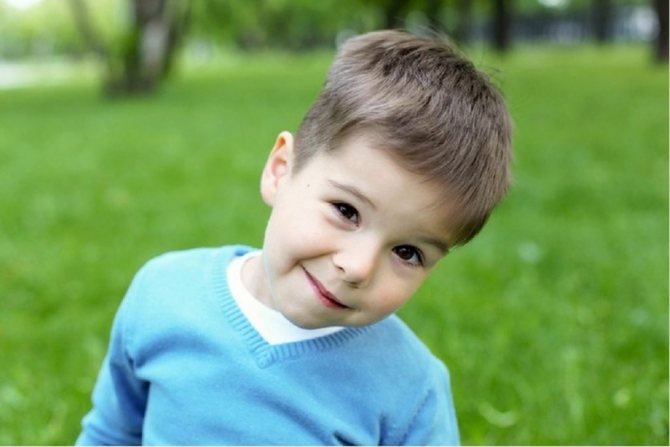
Surely each of us has seen how a child begins to cry a lot and stamp his feet in a public place, demanding that his desire be satisfied. This situation is aggravated by the judgmental words of others. As a result, mom/dad has to fulfill the baby’s whim. If no measures are taken, the child will manipulate adults at every opportunity.
But you also need to be extremely careful with severity. Parents should not “block” any natural manifestation of the baby with their screams. If you constantly yell at your child, he will stop wanting to do anything and decide that it is best to be calm and sit still. If he does not feel parental love, he will become accustomed to learned helplessness.
Studying the psychological characteristics of children aged 3-4 years, psychologists came to the conclusion that the combination of a strict mother and a kind father has a negative impact on the child. The baby begins to take the side that is convenient for him at a certain moment.
Some parents consider it quite normal to drag their child into a marital quarrel and force them to take the side of one of the parents. In order not to lose loved ones, the toddler can choose 2 behavior models:
- Tries to be good and obedient, experiencing constant anxiety.
- He indulges himself on purpose so that his loved ones will rally around him.
Divorce of parents has an extremely negative impact on the psychology of children 4–5 years old. If he sees that there is no love between his parents and they live together for his sake, the child begins to suffer from an unconscious, deep sense of guilt. It is important for parents to understand that children of this age understand more than adults think.
Difficulties in education
Drastic changes in character
Parents are often shocked when their baby, who has been so obedient until now, suddenly begins to behave in a sharply negative manner. Tastes change, and those toys and activities that were previously liked become unloved, the little rebel contradicts his elders, sometimes as if he does it on purpose out of spite, or it’s the other way around. For example, he doesn’t go for a walk, even if he wants to. He gets angry, capricious, and sometimes behaves badly in public.
Hysteria, manipulation
Probably everyone has seen a similar scene: a toddler falls on the floor in a shopping center and begins to scream loudly, demand to buy something, and is hysterical. Parents are often lost, and if those around them also insert judgmental remarks, then an unbearable feeling of shame forces them to follow the child’s lead. This behavior can take hold: a 3-4-year-old baby becomes a manipulator who twists his family as he wants, feeling his impunity and power.

Suppression of natural activity
But there is another extreme: when the father and mother “defeated” their offspring, he becomes quiet, obedient, fearful and completely lacking initiative. Any natural manifestation is followed by an angry shout: “Where did you go?” "Don't run!" "Do not touch!" In the end, the baby stops trying to do something and decides that it is better to sit quietly and not poke his head out. After all, he really needs his mother’s and father’s love, and being bad in the eyes of his family, he will not be able to get it. This is how learned helplessness is formed.
Mom and Dad can't agree
Contradictory upbringing during this period, for example, the combination of a controlling mother and a father who allows everything, has a negative impact on the formation of personality. The little person begins to understand that adults themselves do not know how to cope with him, and the rules of behavior are not the same for different people. Therefore, he adapts to seek protection from one of his relatives from the other. It often happens like this: the baby went to his grandparents, got “spoiled” there, then the parents just can’t teach him to be obedient again, and such educational “swings” are repeated time after time.
Fear of losing loved ones
It happens that a father and mother drag their son or daughter into their marital conflict and force them to take sides, which is extremely painful for the child, because they have to take on a responsibility that is beyond their strength for a small person. Such a child, out of fear of losing his mom or dad, tries to be good and fulfill all the requirements, but in fact he is in constant anxiety or, on the contrary, with his whims, deliberately bad behavior, unconsciously forces his family to rally around him.
You need to know that parental divorce at this age is extremely destructive for the child’s psyche. If the baby feels that his mother and father do not love each other, but stay together for his sake, he experiences an unconscious but deep feeling of guilt. Children at this age understand much more than is commonly thought, and any imbalance in the family system is reflected in the child’s behavior.
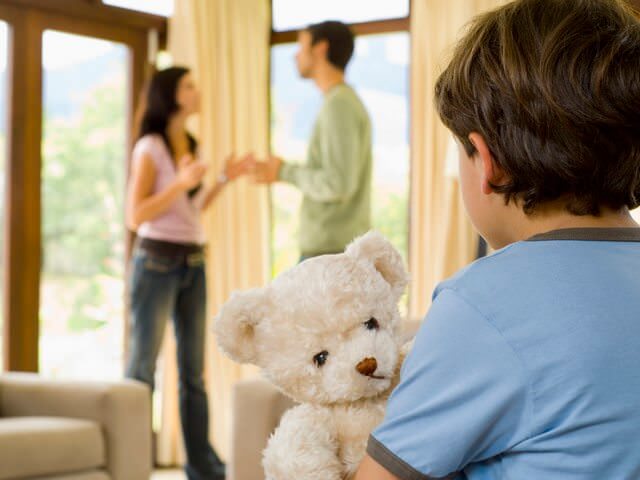
How to get out of a crisis
It is important for parents to understand that the changes occurring in the child’s behavior are a natural process that nothing can influence. During a baby's crisis:
- speech, will and independence, creative abilities develop;
- imitation of elders is observed;
- socialization develops;
- the basic concept of a sense of security is formed.
At three years old, the baby opens the boundaries between himself and the world around him, he learns to distinguish between what is permitted and what is prohibited. At this time, it is important for parents to explain to the child that he must respect others and be able to sympathize.
If a three-year-old child is sent to kindergarten, his socialization occurs much faster. If there are problems communicating with other children, parents should explain to the child why it is necessary to share with others, and when to refuse.
If your child wants to do something on his own, don’t forbid him. Thus, he learns to evaluate his capabilities and get used to independence.
Also at this time, it is important to instill hygiene skills: eat carefully, wash your hands, brush your teeth, get dressed.
Just like an adult
Often parents, without meaning to, cause negative emotions in the child: they force them to sleep when they want to play, to eat “not very tasty” soup, to put away their favorite toys, to go home from a walk. Thus, the child has a desire to harm adults and express his protest. The moral education of children 3-4 years old should take place with constant positive example from adults.
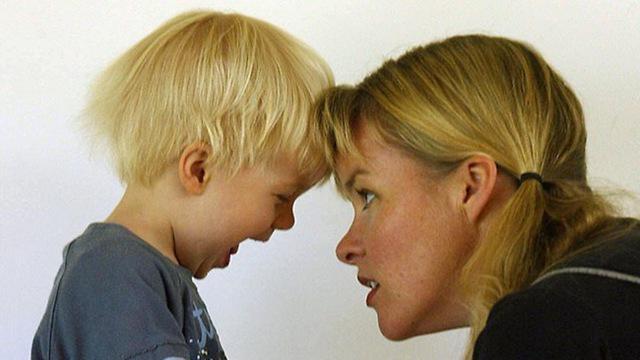
Using a positive example for education
Having survived a crisis, it is important to understand that a child is a separate individual who strives to understand the world and become independent. It is important for moms and dads to find compromises in raising a child, try to maintain his trust, and not break emotional contact.
An English proverb says that raising a child begins with raising parents, so loved ones should set a positive example for the child with their behavior.
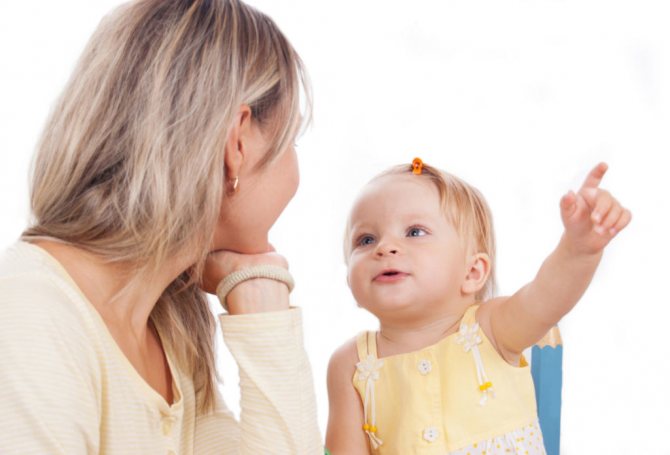
Is your child three years old? Be patient
Understanding oneself as part of the world does not go smoothly for a child, and this is quite normal. Realizing that he is also a person, the baby tries to understand what he can do in this world and how he should act in each individual case. And these tests begin with testing the strength of the parents. After all, if they tell you what needs to be done, why shouldn’t he, the most important person in the family, give orders? What if they listen! He begins to change, his worldview and habits change. At this time, parents notice that their baby is no longer only listening and crying, but is already commanding them, demanding this or that object. This period is called the three-year crisis. What to do? How to cope with your most beloved little person and not offend him? Features of raising children 3-4 years old directly depend on age-related developmental characteristics.
